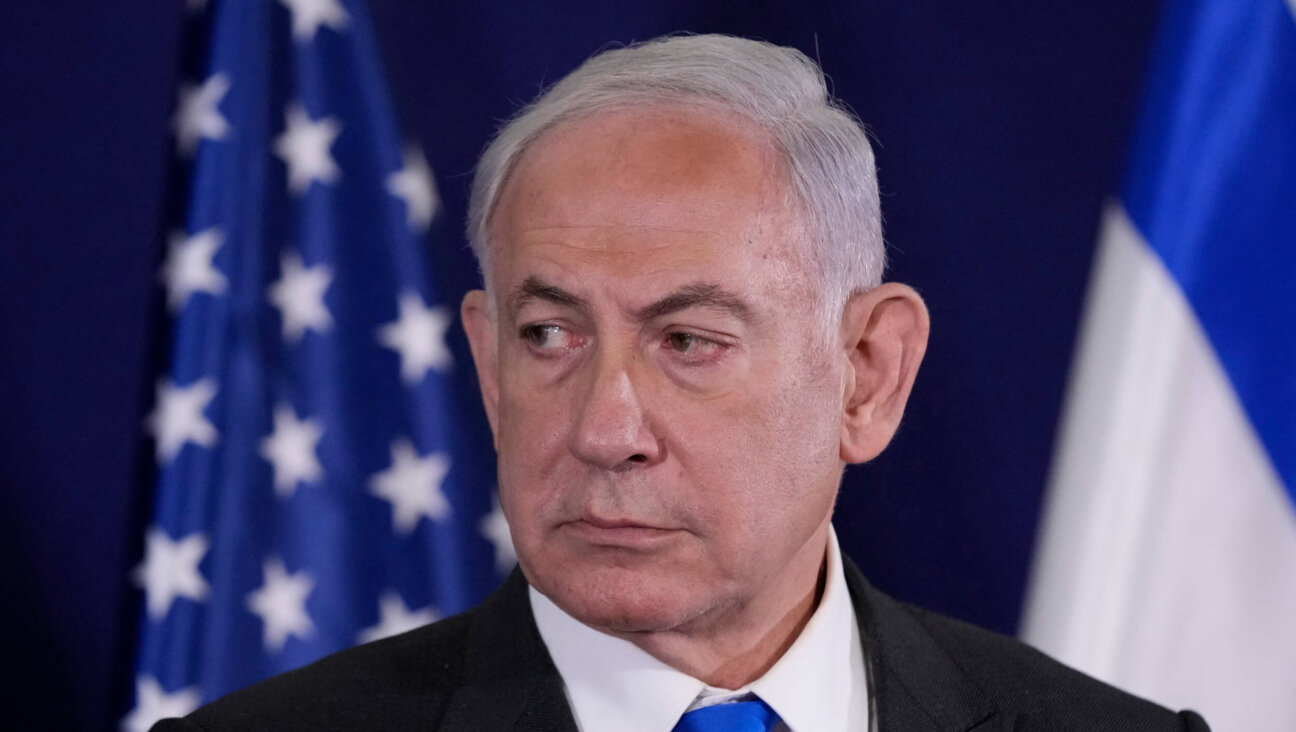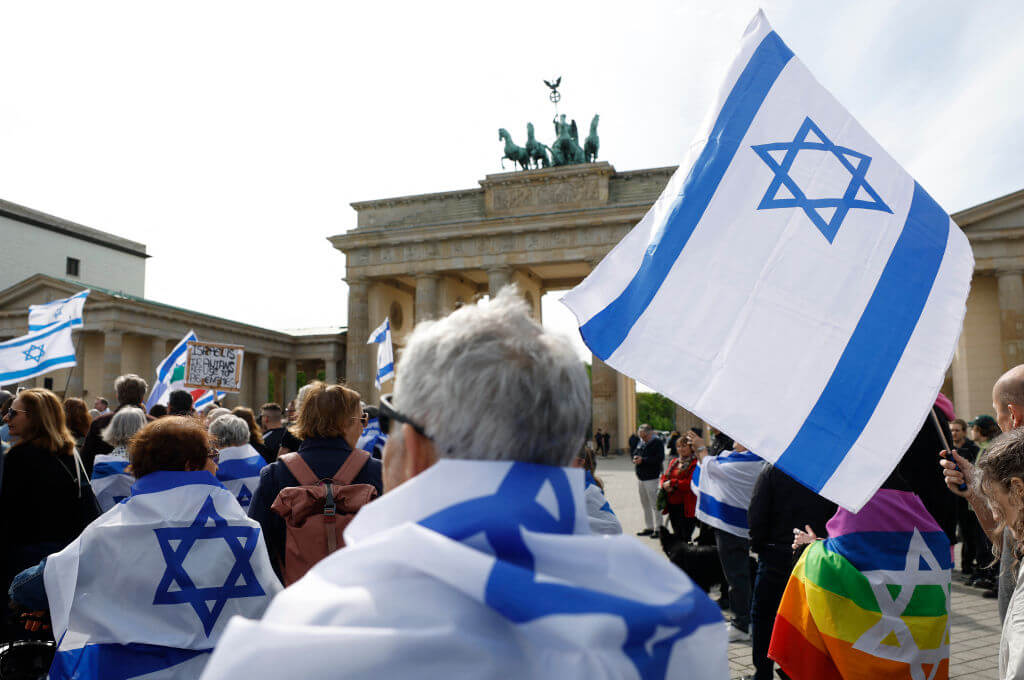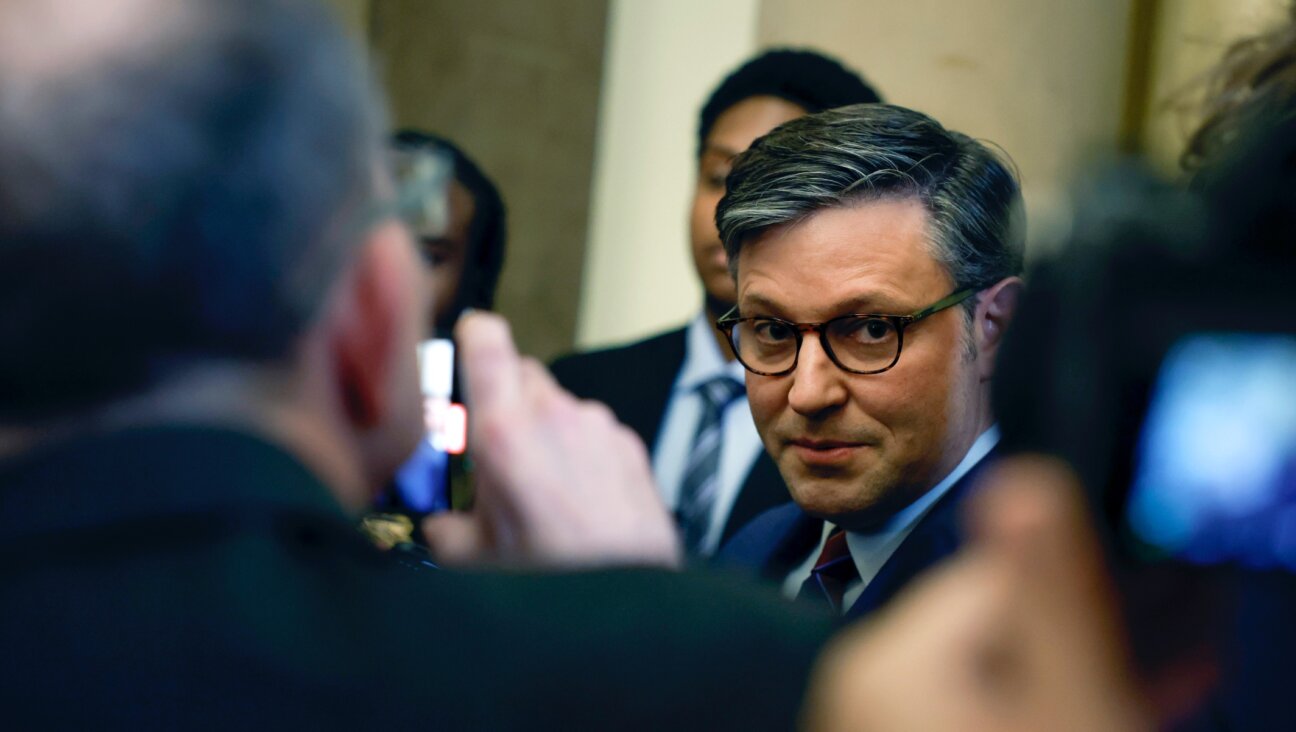Looking for God At Auschwitz
Pope Benedict XVI, visiting Auschwitz, did not say what Abe Foxman of the Anti-Defamation League says he should have said. “We are surprised, upset and sad,” Foxman said. “He talked about the universal dimension of the Holocaust in the world’s largest Jewish cemetery, and he did not talk about the specific policy against the Jews. So it’s a missed opportunity and a step back.” But Pope Benedict is not on the payroll of the Anti-Defamation League. He is the pope, a pope with a compelling interest in theological issues; it is those issues he chose to address in his remarkable speech in Auschwitz.
In fairness, Abe Foxman is not alone in criticizing the pope for his failure to mention contemporary antisemitism. Others, both within the Jewish community and among liberal Catholics, expressed varying degrees of disappointment not only in the omission but also in Benedict’s clear assertion that it was the Nazi regime that was responsible for the Holocaust, not the German people, as also in his failure to acknowledge the responsibility — some would say complicity — of the church for the calamity that befell us.
Like eager little children waiting to hear yet again that mommy loves them, the critics appear to have wanted Benedict at least to endorse what has become a standard teaching of the church during the last several decades, the teaching of Catholic-Jewish reconciliation.
But important as that teaching is, it is by now old news, and the Vatican is not a PR firm. Here, now, it was as if Benedict both takes Catholic-Jewish reconciliation for granted and sees it in a different (and to him, larger) context, the context of reconciliation between man and God. Here, now, he had something new to say, something of profound (and also controversial) importance. And he said it in his very first sentence: “To speak in this place of horror, in this place where unprecedented mass crimes were committed against God and man, is almost impossible — and it is particularly difficult and troubling for a Christian, for a pope from Germany. In a place like this, words fail; in the end, there can only be a dread silence — a silence which is itself a heartfelt cry to God: Why, Lord, did you remain silent? How could you tolerate all this?”
And, a bit later, again: “Where was God in those days? Why was he silent? How could he permit this endless slaughter, this triumph of evil?”
That is as hard a question as there is. It is not a question one expects to hear from the mouth of the Vicar of Christ.
Just before I left for Poland — and Auschwitz — in 1978, I met with Elie Wiesel. His caution to me as I left his apartment was, “When you come back, be silent.” I had no idea what he meant by that. Be silent? I’d thought the point was to bear some sort of witness. But as I debarked on my return, I developed for the first and last time in my life profound laryngitis. It was only a week later that my voice began, slowly, to return. And I understood: The familiar categories would no longer do, the formulaic understandings missed the mark.
There is no satisfying answer to the question of God’s silence, a question that has ever haunted Jewish theological reflection and likely always will. Here is Pope Benedict’s response: “The words of Psalm 44 come to mind, Israel’s lament for its woes: ‘You have broken us in the haunt of jackals, and covered us with deep darkness… because of you we are being killed all day long, and accounted as sheep for the slaughter. Rouse yourself! Why do you sleep, O Lord? Awake, do not cast us off forever! Why do you hide your face? Why do you forget our affliction and oppression? For we sink down to the dust; our bodies cling to the ground. Rise up, come to our help! Redeem us for the sake of your steadfast love!’ (Psalm 44:19, 22-26).
“This cry of anguish,” the pope continued, “which Israel raised to God in its suffering, at moments of deep distress, is also the cry for help raised by all those who in every age — yesterday, today and tomorrow — suffer for the love of God, for the love of truth and goodness. How many they are, even in our own day!
“We cannot peer into God’s mysterious plan — we see only piecemeal, and we would be wrong to set ourselves up as judges of God and history. Then we would not be defending man, but only contributing to his downfall. No — when all is said and done, we must continue to cry out humbly yet insistently to God: Rouse yourself! Do not forget mankind, your creature!”
Yes, the pope might have devoted a sentence, even a paragraph, to the terrible connection of the Jews to the place where he spoke. He came very close at one point: “Deep down, those vicious criminals, by wiping out this people, wanted to kill the God who called Abraham, who spoke on Sinai and laid down principles to serve as a guide for mankind, principles that are eternally valid.” But the word “Jewish” was missing, as also the word “antisemitism,” and Jews who want to own the Holocaust, who feel trespassed upon when others come to Auschwitz with other questions and with other categories, were offended.
I wish the pope had said what such people wanted him to say. If he had, perhaps the focus of attention in the aftermath of his visit would have been on the haunting question he raised, rather than on the controversy the words he did not speak provoked.

I hope you appreciated this article. Before you go, I’d like to ask you to please support the Forward’s award-winning journalism this Passover.
In this age of misinformation, our work is needed like never before. We report on the news that matters most to American Jews, driven by truth, not ideology.
At a time when newsrooms are closing or cutting back, the Forward has removed its paywall. That means for the first time in our 126-year history, Forward journalism is free to everyone, everywhere. With an ongoing war, rising antisemitism, and a flood of disinformation that may affect the upcoming election, we believe that free and open access to Jewish journalism is imperative.
Readers like you make it all possible. Right now, we’re in the middle of our Passover Pledge Drive and we need 500 people to step up and make a gift to sustain our trustworthy, independent journalism.
Make a gift of any size and become a Forward member today. You’ll support our mission to tell the American Jewish story fully and fairly.
— Rachel Fishman Feddersen, Publisher and CEO
Join our mission to tell the Jewish story fully and fairly.
Our Goal: 500 gifts during our Passover Pledge Drive!
























